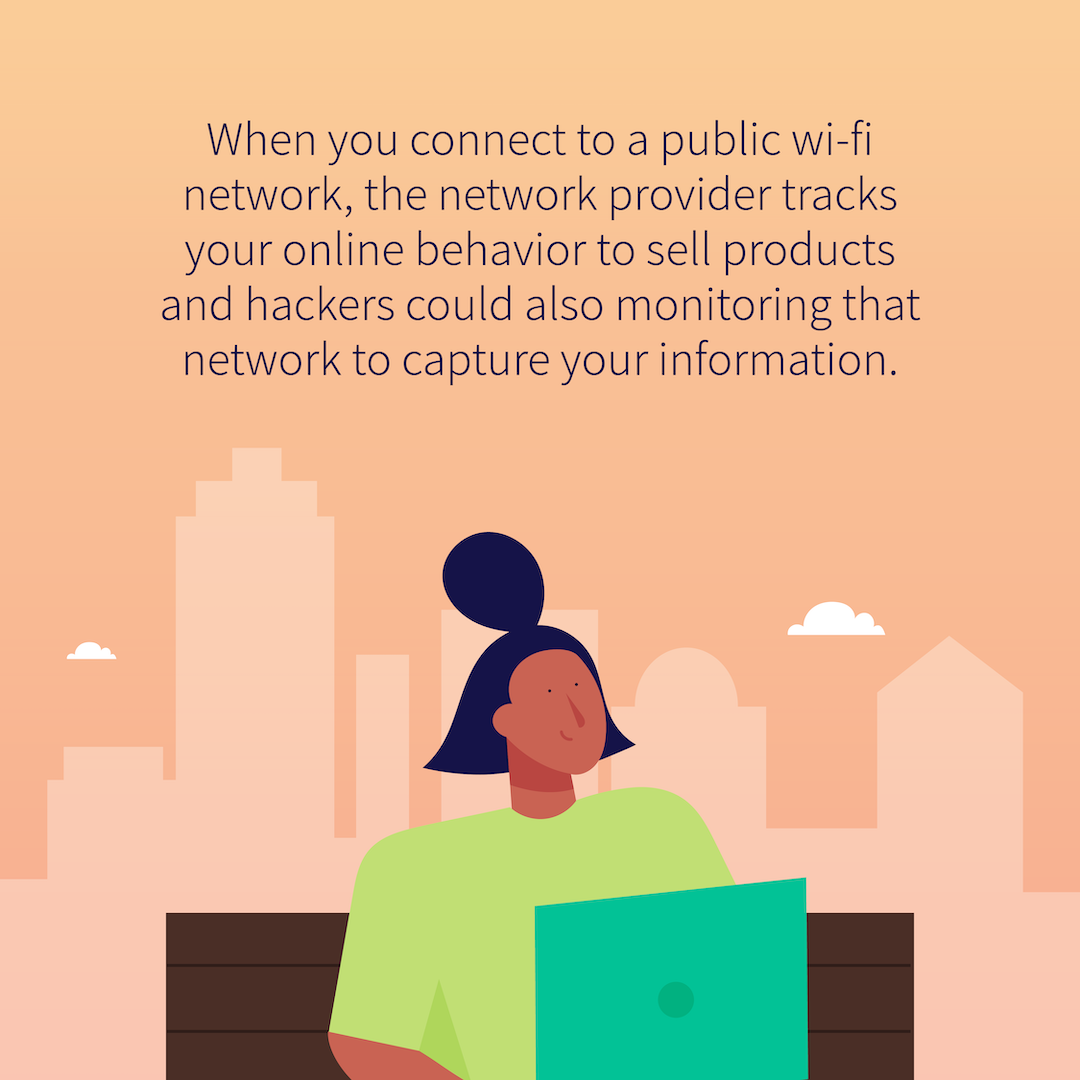Summary: From banking to shopping and entertainment, more and more aspects of life are moving online. The public internet offers oodles of convenience, but no privacy. Fortunately, you can have both by setting up your own, private internet running inside the public one. Find out how easy it can be!

If you’re like most people, you’re currently doing a lot of your shopping, recreational activities, and general life management digitally instead of face-to-face. According to Statista, 69 percent of Americans already shop online, and by 2023 that number is expected to grow to 91 percent. The utilization of online and mobile banking is growing rapidly, with close to half of Americans now paying their bills online, and at least 78 percent of households have “cut the cord” and have one or more streaming services instead of traditional cable plans.
Unfortunately, all of these digital conveniences come at a price: it’s nearly impossible to maintain a private life on the public internet. When you connect to a public wi-fi network at a coffee shop, airport, or library, not only is the network provider tracking your online behavior to sell products or advertising but hackers could also be monitoring that network to capture your information. There’s also the risk that some bad guy has set up a spoofed network, named the same as a legitimate one, and is spying on or infecting your computer while you’re connected. But public wi-fi isn’t the only risk: bad guys can also intercept information traveling between your home network and the internet.
If you want to protect your privacy and personal information, you need to “privatize” your internet connections, and you can do that using a Virtual Private Network, more commonly called a “VPN.” In technical terms, a VPN moves your data through encrypted connections (called “tunnels”) from one point on the internet to another. You can think of a VPN as sort of a pipe running inside a larger pipe, the public internet. The two pipes run to all the same places, but the contents of the inner and outer pipes never mix, so potential watchers on the public internet can’t access your information, online behavior, or geolocation, nor can they tamper with your content.
If setting up your own private internet sounds difficult, don’t worry. In fact, there’s a VPN called Safe WiFi included with the IDX Privacy protection plan. Safe WiFi works on Windows and Mac desktops and on iOS and Android devices. IDX Privacy users can download all applicable versions through their IDX Privacy subscription when they log into their dashboard. Once you download and install the app, you can go through the automated setup process. After that, you can access locations on the internet securely over public or private networks, and the app will automatically encrypt and protect all the information flowing between you and your chosen internet destinations. And if anyone is trying to track those communications, they will see only the internet address of the VPN, not yours, so your identity and location are invisible.
One potential side benefit of VPNs is that advertisers often set prices for products based on the shopper’s location, so hiding your location may get you better deals or access to online content such as sports events that are blacked out in some places. (However, VPNs are illegal in some countries because they make internet traffic anonymous, and any pirated content can still be infected with malware, so you should be careful visiting or downloading from unknown websites.)
Other things you should look for in choosing a VPN:
- Good connection speeds, because you’re routing your data through another location on its way to the destination, which will always have some impact on connection speed. The IDX Safe WiFi VPN is engineered to give you the best, most consistent connection speeds possible. If available, read reviews to see how different VPN options perform.
- A “no logs” guarantee, meaning that the VPN provider won’t track and store information such as the websites you access, the amount of time you spend on a particular site, your internet downloads, or your search engine entries. IDX and other reputable VPN providers have a no-logs policy, but there are a number of bargain VPNs out there that don’t adhere to these privacy standards.
- Ease of use
- Good pricing. (But experts don’t recommend free VPNs for serious privacy protection—there’s always a catch with a free product.)
Also, using a VPN is a great way to protect the privacy of your network connections, but it doesn’t control what’s happening at either end of the pipe. So, remember to use a “privacy-first” browser, and use privacy settings to protect social media accounts and stop ad trackers. (IDX Privacy also includes a data removal feature to delete your personal information from data broker websites.)
As devices and cellular bandwidth become powerful and faster, more and more of our daily lives will be conducted online and, often, on the go. From digital payments to telehealth appointments, you’ll want to be able to safely and confidently connect from wherever you’re working, visiting, or exploring. And with the ease and security of a VPN, you’ll be free to do exactly that.
About IDX
We're your proven partner in digital privacy protection with our evolving suite of privacy and identity products.